Caution: Relief for Paying Employees’ Health Insurance Premium Ended June 30th!
Small employers – i.e., employers who are not applicable large employers (ALEs) -who reimburse or pay a premium for an individual health insurance policy for an employee should be aware that they may be subject to a $100 per day ($36,500 per year), per employee excise tax. Transition relief from the Code Sec. 4980D excise tax ended June 30, 2015.
Background. The Affordable Care Act (ACA) added ERISA § 715(a)(1) and Code Sec. 9815(a)(1) to incorporate the provisions of part A of title XXVII of the Public Health Service Act (PHSA) into ERISA and the Code, and make them applicable to group health plans and to health insurance issuers providing health insurance coverage in connection with group health plans. The incorporated PHSA sections are sections 2701 through 2728 (i.e., the market reforms). An excise tax is imposed on failures to meet these requirements. (Code Sec. 4980D.
Relief for small employers.As noted in Notice 2013-54, 2013-40 IRB 287, small employers that offered their employees health coverage through arrangements that constitute an “employer payment plan” will owe a Code Sec. 4980D excise tax if they fail to comply with the market reforms provisions.Such an arrangement that fails to satisfy the market reforms may be subject to a $100 per day excise tax per applicable employee (which is $36,500 per year, per employee), see irs.gov/Affordable-Care-Act/Employer-Health-Care-Arrangements.
However, because the Small Business Health Options Program (SHOP) Marketplace was still transitioning, and the transition by eligible employers to SHOP Marketplace coverage or other alternatives would take time to implement, Notice 2015-17, 2015-10 IRB 845 (see Weekly Alert ¶ 20 02/26/2015) provided that the Code Sec. 4980D excise tax would not be asserted for any failure to satisfy the market reforms by employer payment plans that pay, or reimburse employees for, individual health policy premiums or Medicare part B or Part D premiums. This rule applied for 2014 for employers that are not ALEs for 2014, and for Jan. 1 through June 30, 2015 for employers that were not ALEs for 2015.
After June 30, 2015, such employers are generally liable for the Code Sec. 4980D excise tax.
For this purpose, an ALE generally is, with respect to a calendar year, an employer that employed an average of at least 50 full-time employees (including full-time equivalent employees) on business days during the preceding calendar year (see Reg. § 54.4980H-1(a)(4)). In determining whether an employer was an ALE for 2014 and 2015, an employer can determine its status as an ALE by reference to a period of at least six consecutive calendar months, as chosen by the employer, during the 2013 calendar year for determining ALE status for 2014, and during the 2014 calendar year for determining ALE status for 2015 (rather than the entire 2013 calendar year and the entire 2014 calendar year).
Employers eligible for this relief that had employer payment plans weren’t required to file IRS Form 8928 (Return of Certain Excise Taxes Under Chapter 43 of the Code) – for failures to satisfy requirements for group health plans under chapter 100 of the Code, including the market reforms – if those failures were solely as a result of having the arrangements for the period for which the employer is eligible for the relief. IRS states that this relief does not extend to stand-alone health reimbursement arrangements (HRAs) or other arrangements to reimburse employees for medical expenses other than insurance premiums.
Medicare premium reimbursement arrangements. Notice 2015-17 provided that an arrangement under which an employer reimburses (or pays directly) some or all of Medicare Part B or Part D premiums for employees constitutes an employer payment plan, as described in Notice 2013-54, and if such an arrangement covers two or more active employees, it is a group health plan subject to the market reforms. An employer payment plan may not be integrated with Medicare coverage to satisfy the market reforms because Medicare coverage is not a group health plan.
Notice 2015-17 also addressed other topics, including: (a) the treatment, for federal tax and for market reforms purposes, of arrangements reimbursing premiums of 2% S corporation shareholder-employees; and (b) the application of the ACA market reform provisions to provide a TRICARE-related health reimbursement arrangement (HRA), see Weekly Alert ¶ 20 02/26/2015.
Excise tax applies after June 30. After June 30, 2015, employers are generally liable for the Code Sec. 4980D excise tax.
If you have questions about any of the above information, or need guidance on any ACA compliance regulations, please reach out.

